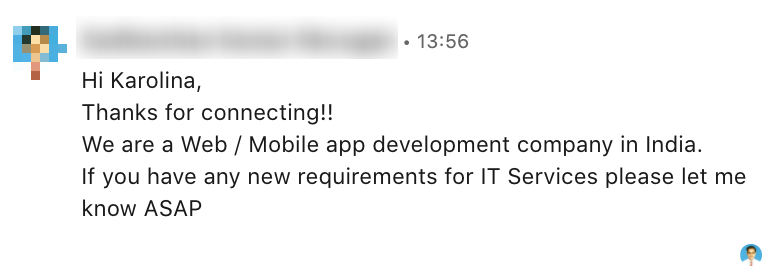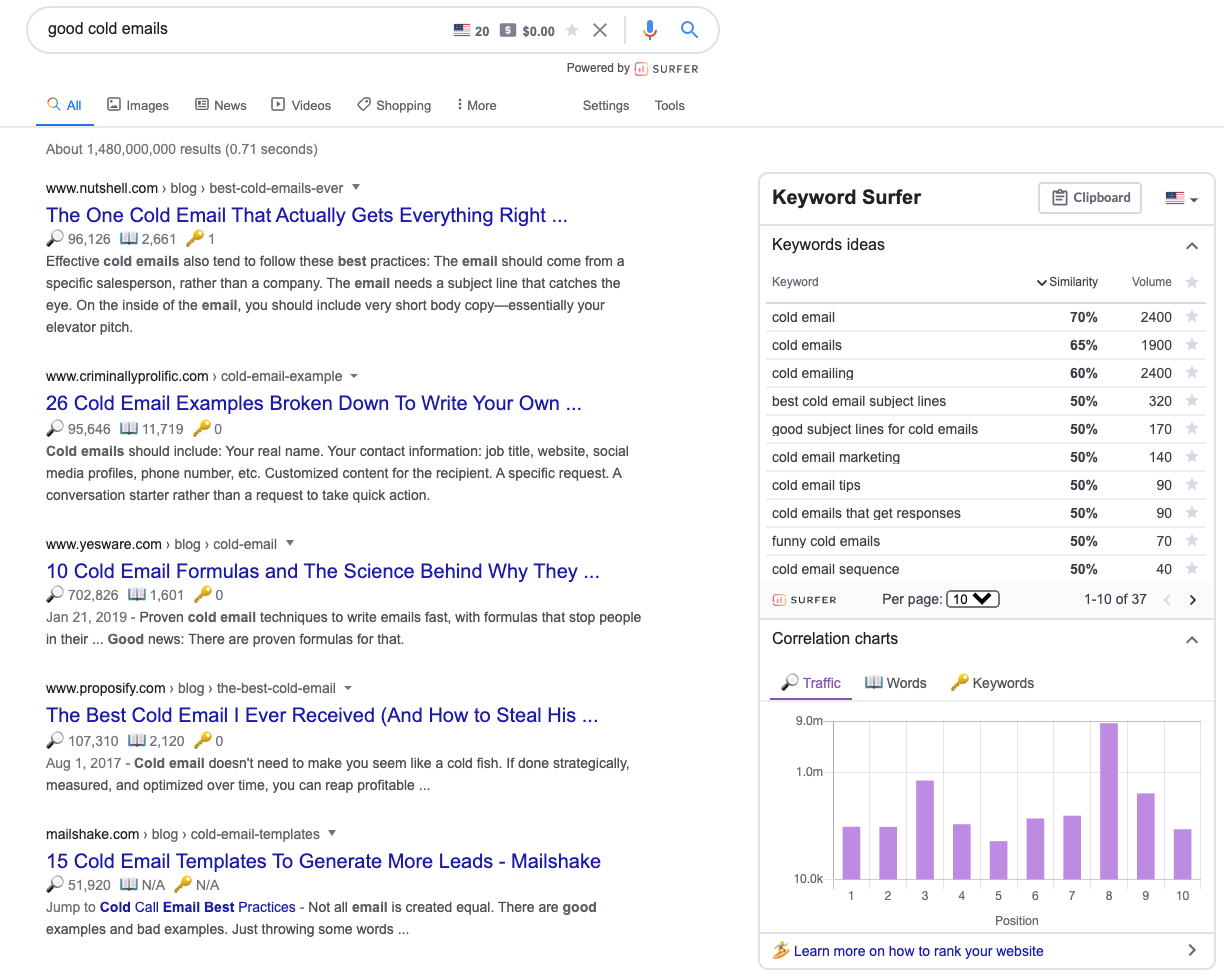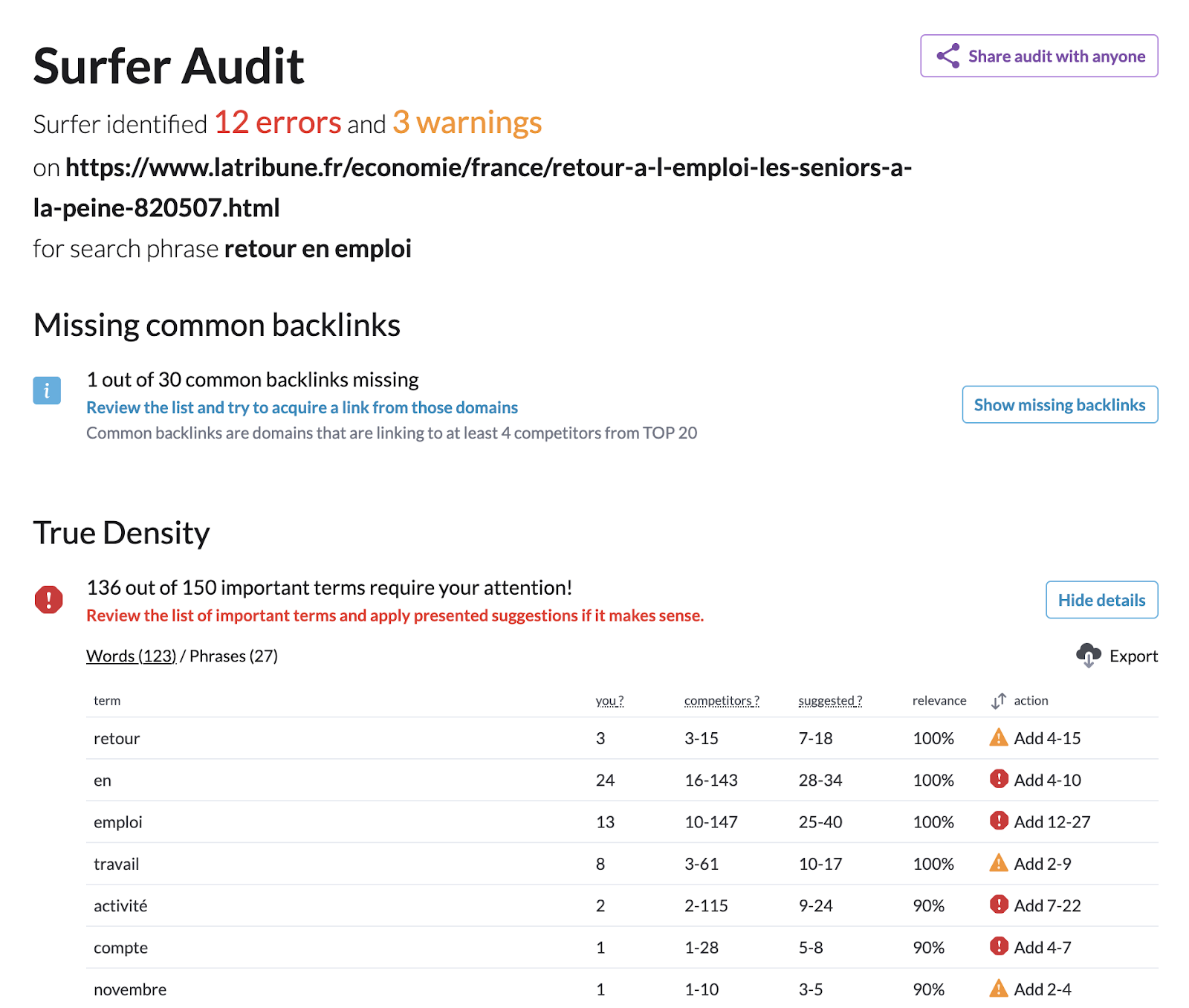
The economic crisis we’re facing today in the face of COVID-19 came suddenly.
Many executives have to deal with a situation they have never seen or experienced before: cutting down on staff, reducing expenses, cutting marketing budgets, suspending investments... Those are now part of the everyday lives of many business owners.
The marketing industry has been hit particularly hard.
If you’re an SEO agency owner or you’re running a one-person marketing agency business, read on!
Pessimism and chain reaction
According to the Office of National Statistics, 58% of all businesses who took part in the survey noted a decrease in their turnover.
The spread of pessimism, in many cases, led to exaggerated actions that affect budgets, employees, suppliers, and service providers. Since companies depend on each other, the chain reaction caused significant regression in demand for marketing services.
The reluctance towards spending money not only led to justifiable actions but also overreactions. There are two types of companies who decided to cut their marketing budget:
- Companies who want to secure money
- Companies who have no demand for their goods
It makes a lot of sense for the travel industry to stop spending money on marketing. They belong to the second group and this is usually the right call.
However, there are companies that choose to secure as much money as they can while they could positively impact their bottom line by investing in marketing. For those companies, marketing is usually a cost, not an investment. In other words, they base their actions on pessimism rather than reason.
This, in my opinion, is a huge mistake.
I believe that, sooner or later, executives will realize that every dollar spent on high-quality marketing services is an excellent investment, especially in times of crisis.
Waiting too long is a risky move
Some entrepreneurs decided to wait out the crisis and see what will happen. Limiting expenses and putting the process of making decisions on hold is the safest approach only seemingly. There’s no time to waste on waiting until the economy is entirely released.
Imposed restrictions and limitations will be gradually voided or eased.
More types of businesses will be eligible to reopen and prosper. It's our responsibility to prepare ourselves to operate efficiently under new circumstances.
10 tips to win new customers during the crisis
With the right approach, client acquisition may be easier than you'd expect. Especially now, that fewer businesses fight for the attention of your audience.
There are a few key elements you should incorporate into the process to facilitate it.
1. Use an individual approach
Pitching hundreds of people on LinkedIn the same boring way should never be a part of your strategy.
Repetitive, automatically- generated proposals can’t possibly be efficient, as many potential clients consider them spam. I get it – if you write 1,000 people, it seems like a better chance to get a client than when you reach out to 50.
I bet sending hundreds of those could not be effective...

Focusing on quality over quantity will bring better results. Personalize your message, be friendly, ask relevant questions.
According to the research by Gong, asking for interest is twice as effective than pushing for a call or a meeting. Sell a conversation, not a meeting.
To make it clear, there is nothing wrong with automation, provided that it incorporates smart, automated components, as they enhance your proposals and increase the conversion rate.
For instance, the inclusion of an individual short-term content plan, optimization strategy, basic audit, or link building roadmap would show your potential and expertise:
Hey [first name],
I hope this email finds you well! I wanted to reach out because [some relevant information/problem identification for your prospect]. Me and my team could fix that problem for you which would translate into [a result].At [Your company name] we work with clients like [relevant client names] to achieve the exact thing. We do this by:
- Benefit 1
- Benefit 2
- Benefit 3
Do you think this is something you might be interested in? Let’s talk!
Cheers,
Sławek
If such message was timely sent, I wouldn’t hesitate for long.
2. Create and present proposals quickly
According to Better Proposal’s reports, conversion rates of proposals sent within 24 hours after a customer inquiry tend to be significantly higher in comparison to offers delivered within 3-4 days.
While, at first glance, an individual approach and quick proposals’ crafting seem to contradict, it's crucial to find the sweet spot that works best for your type of business.
If you’re just one-man army, reach out to 20 people so you can handle the potential sales like a pro. Maybe even include in your message something like:
If you’d be interested in jumping on a call for 20 minutes, I would get back to you with an offer in the next 24 hours.
Now that’s an irresistible offer!
3. Be responsive and trustworthy
Sounds obvious, I know. But this is something people tend to forget in their sales.
Stay in touch with potential clients. Don't be too pushy; rather, respond kindly to questions as they appear.
Make your response comprehensive, and try to use the language and vocabulary adjusted to the prospect's level of expertise. Use styled text in your email content. Headers, lists, and styled font should make complex information more digestible.
Write emails in a way that leaves no questions unanswered. Fewer emails, more value. That will shorten your sales cycle as well.
4. Use social media
Social media can be utilized for many purposes.
It's an excellent way to stay connected with potential clients (by inviting them to your network) and to prove your expertise and experience by posting case studies or regular service-related articles.
You can try this:
- Create a Facebook group for your audience and stir some good conversations.
- Upgrade your LinkedIn profile so it looks professional. Try posting EVERY DAY. It will take you little time but the consistency will be rewarded.
- Engage with others in groups on Facebook. Be helpful, build your brand.
- Answer questions on Quora. Don’t promote your business directly though.
- Engage with others on Twitter and post regularly.
- Use the same content for Twitter, LinkedIn, Facebook, Quora, Instagram… Whatever your channel is
5. Be flexible
As circumstances are changing, our attitude has to be flexible as well.
Adapting to the new realm (and changes in industry standards and clients’ expectations) requires more flexibility than ever. There are many ways to implement flexibility in your services.
Individually customized offers or lenient terms and conditions surrounding cooperation are just two of the many examples.
Make your clients feel safe. Guarantee your delivery times. Allow them to cancel any time they want. Show them how they can actually spend less and where the quick wins are. If you’re effective, your client will stick with you.
The willingness to test out new solutions and the ability to adjust to the existing situation can be a game-changer.
6. Create effective proposals
There are a lot of simple enhancements that foster efficiency. The most important ones are timing and document format. According to the Better Proposals’ 2019 report, the conversion rate can be increased almost instantly after implementing a set of good practices like:
- Use covers to make your proposal look professional
- Don’t print your offer. It decreases your chances to close a deal big time
- Keep your proposal six pages max
If you've ever contacted client support, you can probably imagine how a quick response could impact the potential client's attitude. Creating high-converting proposals in a relatively shorter time would be similarly impactful.
7. Use Keyword Surfer – free Chrome extension for keyword research
A few weeks ago, while conducting research for this article, I had interviewed a bunch of online marketers. One of them was my friend, who is in charge of client acquisition in KS SEO Agency. He pointed to the most time-consuming activities around the proposal crafting process.
One of them was the keyword research required for each outgoing proposal.
There are free tools like Google Keyword Planner, that provide keyword suggestions, monthly volume, and estimated CPC, but they leave much room for improvement.
Google Keywords Planner has one main limitation: You can't actually see the SERP for each keyword, so sometimes you're not able to assess if the chosen phrase makes sense. Changing the context between Google search results and Keyword Planner is, well, quite annoying.
Keyword Surfer is entirely free, allowing you to do research directly in SERP. It provides more data, shows relatedness of given keywords, and much more.
Ever since introducing Keyword Surfer to my friend, he saves at least an hour daily and converts more prospects into customers.

8. Incorporate an audit to your proposals
A comprehensive audit should become a critical element of every SEO proposal. It should expose the most significant website deficiencies, content gaps, and weaknesses.
Time dedicated to preparing a single offer is limited, and conducting an in-depth audit consumes a lot of resources. The depth of each analysis should be adjusted to the potential of each prospect, your unique abilities, and accessible toolset.
So instead of doing an extensive audit yourself, generate an audit inside Surfer. Your client will understand exactly what you’ll be working on in the next months.
And showing them how they compare to top pages in search results can be really effective in client acquisition.

Primary purposes of using Surfer's Audit:
- The analysis is based on the client's best performing competitors, mostly well known to the potential client. It gives a good sense of personalization.
- Adjustable, data-driven suggestions let you craft the outline of an SEO strategy in a few minutes.
- Diagnosing content gaps becomes more accessible than ever. Instead of time-consuming analysis of syntax, collocations, words’ frequency, or semantics, Surfer delivers the comprehensive result with suggested actions.
- Link building opportunities help you to create an off-site strategy. Along with content related suggestions, the audit consists of the section dedicated to link building. The outcome of each analysis includes the list of domain's missing links in comparison to your direct competitors.
- Generating an audit takes less than a minute. Conducting comparable quality manual analysis would take much longer.
9. Introduce a realistic objective
While current circumstances seem to be detrimental, showing realistic objectives in your sales proposal makes it more appealing. The chances of acquiring the customer are increased when such goals are in line with his expectations.
What if your client has an unrealistic deadline or goal?
Talk to them. Explain why it is what it is. Being upfront about those will build trust and increase your chances of success.
10. Don't let your service quality diminish
Sustainable high standard of service and communication is crucial for a long-lasting cooperation. Keep all of the affordable tools that could potentially positively influence your service quality.
While it's reasonable to suspend significant expenses that drain your budget, saving a few dollars won't change a lot as far as your financial situation is concerned. At the same time, the quality of your SEO service will have a significant impact on your business.
Conclusion
Despite the fact that most marketers are facing a hard time, there are ways to recover by adjusting the strategy to current circumstances. Take actions that increase your skills and services' quality, and reverse the negative outcome of the Coronavirus on your business.
It's not the first, nor the last crisis in our lifetime. Each will teach us how to persevere and become stronger, so let's take this as a valuable lesson.
Check also:
- Ecommerce SEO: Best Practices for More Traffic and Sales
- 8 Foolproof Tips to Get More Organic Traffic to Your Website

